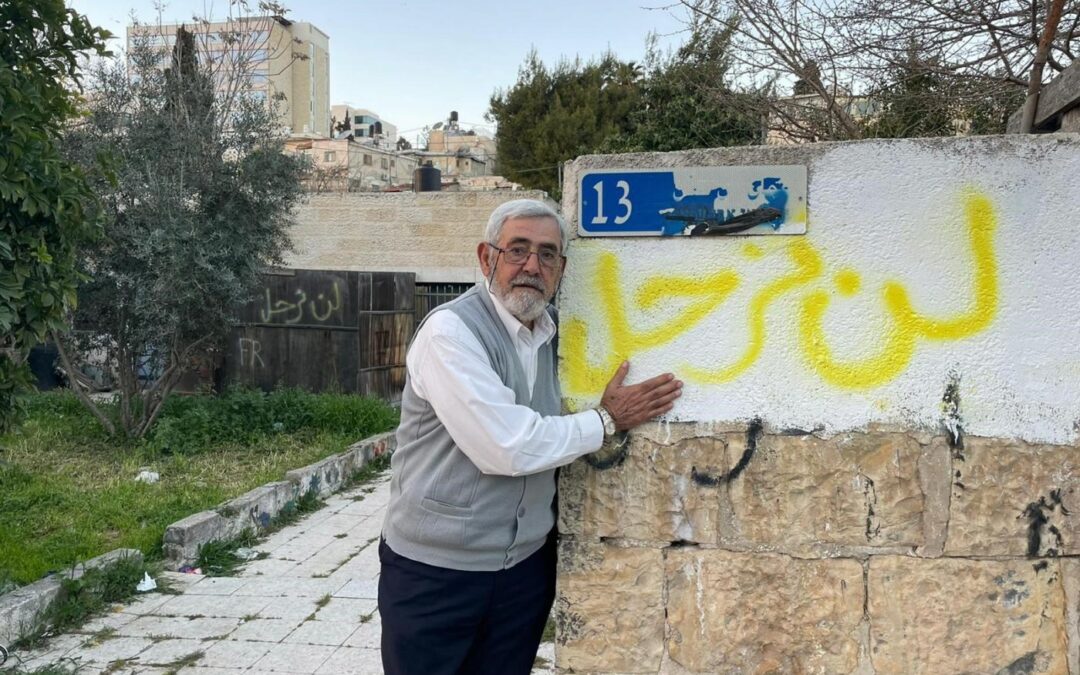
May 11, 2021 | News
The International Criminal Court (ICC) must immediately investigate the forced eviction of Palestinian families and residents in Sheikh Jarrah and other neighbourhoods in East Jerusalem, as well as any indiscriminate and disproportionate attacks against civilians in the Gaza Strip, the ICJ said today.
The investigation must establish whether any serious violation of international humanitarian law, such as indiscriminate or disproportionate attacks against civilians, the forced deportation of Palestinians and the transfer of Israeli settlers into occupied East Jerusalem, as well as the extensive destruction and appropriation of property, have taken place in Sheikh Jarrah and in Gaza. Following the opening of an investigation by the ICC Office of the Prosecutor, if warranted, Israeli officials should be prosecuted for such crimes to ensure accountability. As confirmed by the ICC Pre-Trial Chamber I, the Court’s territorial jurisdiction “extends to the territories occupied by Israel since 1967, namely Gaza and the West Bank, including East Jerusalem.”
Evictions against Palestinians in Sheikh Jarrah were ordered by the Jerusalem District Court following legal proceedings initiated by Israeli settlers organizations under Israeli law. The Supreme Court was due to rule on 10 May 2021 on challenges against evictions brought by Palestinian families, yet, it decided to postpone the hearing at the request of Israel’s Attorney-General.
“Evictions in Sheikh Jarrah are part of a cynical campaign by the Israeli authorities to purge occupied East Jerusalem from its Palestinian civilian population,” said Said Benarbia, the ICJ MENA Director.
The ICC must also ensure accountability for unlawful attacks targeting civilians and civilian objects in connection to the hostilities between Israel and Palestinian armed groups in Gaza. Since 2007, Israel has imposed a full closure on Gaza, which has resulted in a major humanitarian crisis, and has led to significant escalation of hostilities in 2008-09, 2012 and 2014, where thousands of Palestinians have been killed and injured. On 10 May 2021, Hamas started firing rockets against Israel following a crackdown on Palestinian worshippers in the al Aqsa compound in Jerusalem. In response, Israel has carried out multiple airstrikes in Gaza, which have reportedly caused the death of at least 24 people, including nine children. All parties to the conflict are prohibited from conducting indiscriminate and disproportionate attacks, which may amount to war crimes under the Rome Statute.
“The ICC must ensure that all those responsible for ordering and carrying out these attacks be held criminally accountable,” Benarbia added.
Since April 2021, Palestinians peacefully demonstrating against the evictions in Sheikh Jarrah, a decades-long legal battle, have been subjected to violence by Israeli settlers and Israeli security forces. Earlier this year, the Jerusalem District Court ordered that several Palestinian families be evicted from the neighborhood. According the UN Office of the High Commissioner for Human Rights, “at least 218 Palestinian households in East Jerusalem, including the families in Sheikh Jarrah, have eviction cases filed against them”, and overall “970 people, including 424 children, [are] at risk of displacement.”
As part of the Israeli crackdown on Palestinians, Israeli security forces have also been firing tear gas and employing other less-lethal weapons against people praying at the Al Aqsa mosque in Jerusalem purportedly in crowd-control operations. According to the Palestinian Red Crescent, more than 200 demonstrators have been injured as a result of the use of such less-lethal weapons.
Israeli forces have also been preventing gatherings of Palestinians at Damascus Gate in East Jerusalem during the night hours of the month of Ramadan when many Muslims gather for prayer and breaking of the fast at sunset, and have responded with excessive force to the ensuing demonstrations.
Israel has a duty to respect the right to peaceful assembly and freedom of religion of Palestinians in East Jerusalem. Israel’s use of excessive force against Palestinian demonstrators and the crackdown on Palestinian worshippers violate its obligations under international human rights law
“Israeli authorities must respect and ensure the right of Palestinians to protest and challenge decades of prolonged unlawful occupation and related abusive practices, and immediately end the use of disproportionate and unlawful force to disperse protesters”, Benarbia said.
Contact
Said Benarbia, Director, ICJ Middle East and North Africa Programme, t: +41-22-979-3817; e: said.benarbia(a)icj.org
Asser Khattab, Research and Communications Officer, ICJ Middle East and North Africa Programme, e: asser.khattab(a)icj.org
You can read this press release in Arabic here or download a PDF version of it in English here.
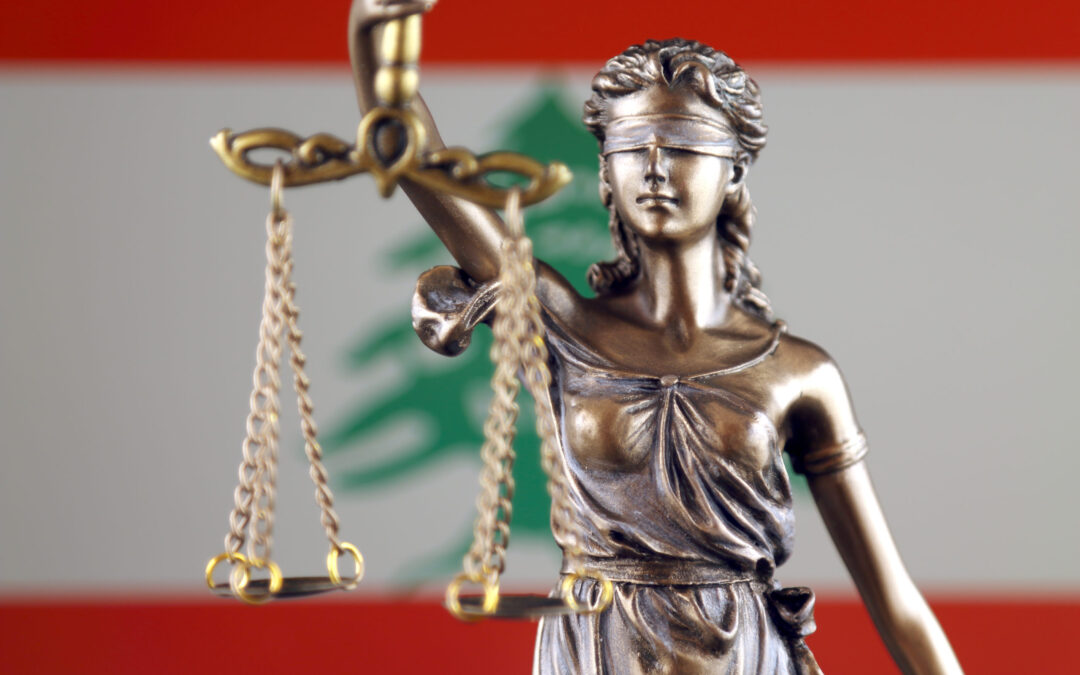
May 4, 2021 | News
The removal of Lebanese public prosecutor Ghada Aoun from financial cases she had been overseeing constitutes a further attack on the independence of an already enfeebled judiciary, the International Commission of Jurists said today.
On 15 April 2021, Lebanon’s General Prosecutor removed Ghada Aoun, Mount Lebanon Public Prosecutor, from the financial cases she had been overseeing, including high-profile corruption and illegitimate gains cases. Aoun had charged Riad Salameh, the Governor of Lebanon’s Central Bank, with dereliction of duty and breach of trust, and had charged former Prime Minister Najib Mikati with illegitimate gains. She had also been overseeing and issuing arrest warrants in other high-profile cases.
“The Lebanese judiciary has a long history of utter subordination to the ruling political class in Lebanon,” said Said Benarbia, the Director of the ICJ MENA Programme.
“Removing prosecutors and investigating judges from cases solely because they carry out their legitimate functions flies in the face of the independence of the judiciary and sends a chilling message to others who might dare challenging the authorities.”
Aoun’s ouster followed the removal of investigative judge Fadi Sawan from the 2020 Beirut port blast case. Sawan was removed on 18 February 2021 by the Court of Cassation after bringing criminal negligence charges against the acting President of the Cabinet and former ministers in relation to the devastating explosion on 4 August 2020, in which nearly 200 people died and thousands more were injured. His removal by the Court of Cassation came after two former Ministers who were facing criminal charges filed a complaint against Fadi Sawan before the General Prosecutor, requesting his removal from the case.
The Lebanese authorities, including judicial authorities, should comply with their obligations under international law and ensure that judges and prosecutors be able to exercise their functions independently, free of any influences, pressures, threats or interference from any quarter or for any reason.
In August 2020, the ICJ urged the Lebanese authorities to work with the United Nations to establish a special, independent mechanism to probe the Beirut blast in line with international law and standards with a view to establishing the facts and making recommendations for appropriate accountability measures, including criminal prosecutions.
The call was informed by the ICJ publications and findings on the independence and functioning of the judiciary in Lebanon, including recommendations to ensure that the judiciary is not subject to any form of undue influence by political actors and confessional communities, and that it is able to fulfill its responsibility to uphold the rule of law and human rights.
This press release is also available in Arabic.
Contact:
Said Benarbia, Director, ICJ Middle East and North Africa Programme, t: +41-22-979-3817; e: said.benarbia(a)icj.org
Asser Khattab, Research and Communications Officer, ICJ Middle East and North Africa Programme, e: asser.khattab(a)icj.org
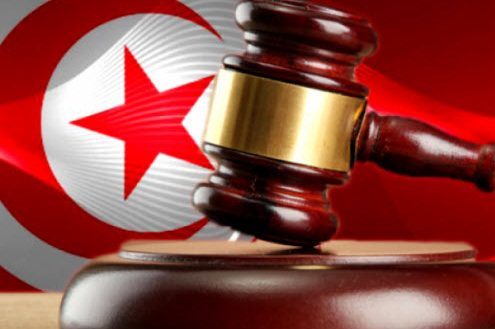
Apr 7, 2021 | News
Victims of gross human rights violations must be provided with effective reparations and guarantees of non-recurrence by Tunisia’s Specialized Criminal Chambers (SCC), judges and prosecutors asserted during a workshop held by the ICJ and the Association of Tunisian Magistrates (AMT) on 3 and 4 April.
The workshop highlighted the need for the SCC to adopt restitution, compensation, rehabilitation and satisfaction measures to achieve to the fullest extent possible reparation for material and moral damage suffered by victims of gross human rights violations in Tunisia.
Participants further emphasized that SCC decisions should include recommendations on guarantees of non-recurrence, including on legal and institutional reforms.
The workshop was attended by more than 25 Tunisian judges and prosecutors attached to the 13 Specialized Criminal Chambers. Discussions involved also international experts and ICJ representatives.
“It is important that the SCC, consistent with international standards, adopt a comprehensive notion of victims and persons entitled to reparation,” said Philippe Texier, ICJ Commissioner.
“In this respect, reparative measures should focus not only on direct victims, but also indirect victims, including the immediate family or dependants of the direct victim and persons who have suffered harm in intervening to assist victims,” he added.
Federico Andreu-Guzmán, international expert, noted the non-derogable nature of the right to reparation under international law and that SCC should seek to ensure that all their decisions comply with this right.
“SCC decisions should include wide-reaching recommendations in order to guarantee that the violations will not be repeated,” said Said Benarbia, Director of ICJ’s Middle East and North Africa Programme.
The workshop also offered the opportunity to participants to discuss a set of recommendations targeting the High Judicial Council and its role in supporting the SCC.
The recommendations, which were developed by a group of SCC judges and prosecutors following the ICJ’s roundtable of 13-14 March, aim to find joint approaches to address ongoing procedural obstacles before the SCC and will be subject of future meetings and roundtable discussions organized by the ICJ and the AMT.
Contact
Valentina Cadelo, Legal Adviser, ICJ Middle East and North Africa Programme, e: valentina.cadelo(a)icj.org
Asser Khattab, Research and Communications’ Officer, ICJ Middle East and North Africa Programme, e: asser.khattab(a)icj.org
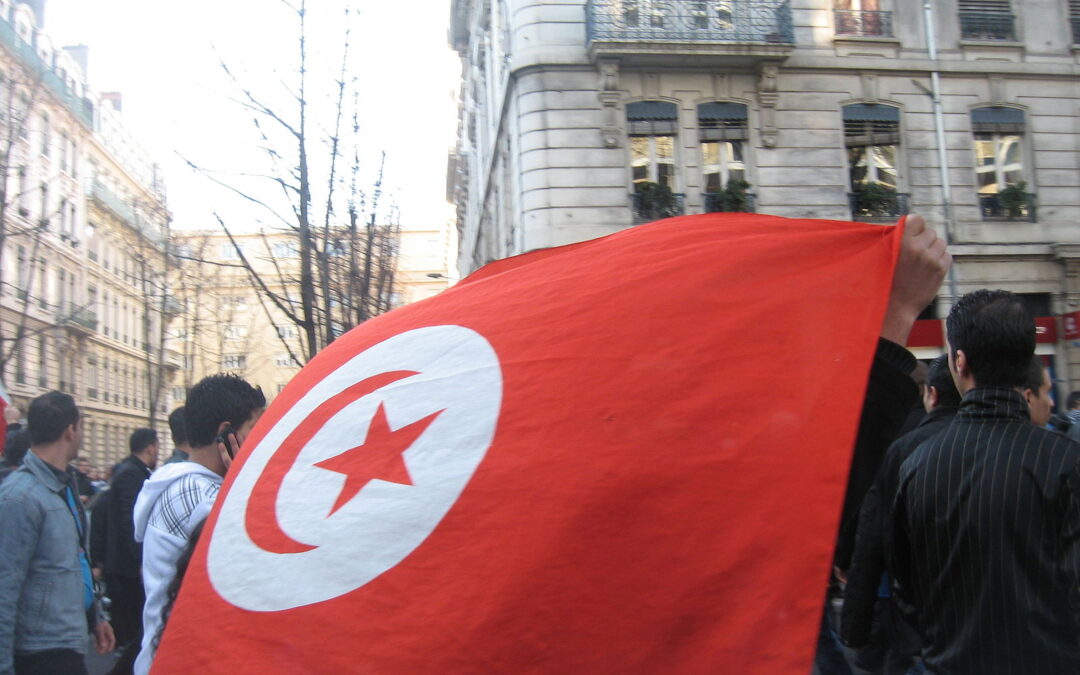
Mar 28, 2021 | News
The credibility of the criminal trials currently ongoing before Tunisia’s Specialised Criminal Chambers depends on their capacity to deliver justice and reparation to victims and their families in a manner consistent with international law, said more than 25 Tunisian lawyers and human rights defenders at a workshop organized with the ICJ and international experts.
The workshop, which was held in Tunis on 25 and 26 March, aimed at enhancing the capacity of participants to use international law in the preparation and litigation of cases before the Specialized Criminal Chambers (SCC) effectively.
The participants discussed the application of international law and standards relating to the notions of victims and persons entitled to reparation before the SCC. Participants also considered the various forms of reparation, including restitution, compensation, rehabilitation and satisfaction, and guarantees of non–repetition.
The workshop was attended by international and Tunisian experts, along with ICJ representatives.
The Director of ICJ’s Middle East and North Africa Programme, Said Benarbia, emphasized the importance of guaranteeing the right of victims to effective remedies and reparations, especially in transitional justice contexts.
Mondher Cherni, the Secretary–General of the Tunisian Organization Against Torture (OCTT), underlined that reparations must be comprehensive. “Tunisian courts should ensure the adoption of a comprehensive notion of harm, while addressing the violations suffered by victims in Tunisia,” he said.
Rachel Towers, Legal Advisor at Dignity (The Danish Institute Against Torture)highlighted that there is no justice without remedies and reparations; accordingly, Tunisia should ensure that victims of gross human rights violations may enjoy these rights effectively.
Clive Baldwin, Senior Legal Advisor at Human Rights Watch, said that “Tunisia is not only bound to punish and sanction gross human rights violations, but also to prevent them from occurring in the future.” Baldwin also emphasized the importance of providing a comprehensive set of guarantees of non–repetition, including legislative and institutional reforms aiming to ensure effective civilian control of military and security forces and the independence of the judiciary.
Participants also addressed the lack of compliance in law and practice of the Tunisian transitional justice framework with international law and standards.
“The functioning and delivery of transitional justice in Tunisia has been enduring numerous and complex challenges over the last years,”said Benarbia.“The Tunisian authorities should immediately respond to these challenges with a holistic action plan, based on concrete reforms and solutions” Benarbia added.
Contact
Valentina Cadelo, Legal Adviser, ICJ Middle East and North Africa Programme, e: valentina.cadelo(a)icj.org
Asser Khattab, Research and Communications’ Officer, ICJ Middle East and North Africa Programme, e: asser.khattab(a)icj.org
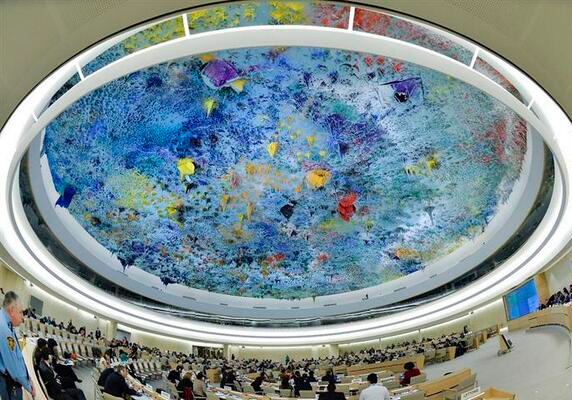
Mar 26, 2021 | News
In a joint communication to five United Nations Special Procedures, the ICJ and its partners urged the mandate holders to call on the Tunisian authorities to immediately stop hampering the transitional justice process.
The organizations expressed their concern at the ongoing attempts to undermine the transitional justice process and accountability efforts for past gross human rights violations.
“The Tunisian transitional justice process has been under serious attack since its inception in 2013. Today, the ICJ and its partners are urging the United Nations Special Procedures to take urgent action to deter such attacks, demand justice for the victims and secure accountability for the perpetrators,” said the Director of ICJ’s Middle East and North Africa Programme, Said Benarbia.
The joint communication highlights the following areas of concern:
- The recent political initiatives to dismantle the transitional justice process;
- The incessant attacks against the Truth and Dignity Commission (Instance Verité et Dignité, IVD) and its 2018 final report’s findings;
- The lack of support to the Specialized Criminal Chambers (SCC) and the numerous obstacles that risk to severely impair access to justice and effective remedies for victims of gross human rights violations.
The communication is addressed to the following United Nations Special Procedures:
- The Special Rapporteur on the promotion of truth, justice, reparation and guarantees of non-recurrence;
- The Special Rapporteur on torture and other cruel, inhuman or degrading treatment or punishment;
- The Special Rapporteur on the independence of judges and lawyers;
- The Working Group on Arbitrary Detention; and
- The Working Group on Enforced or Involuntary Disappearances.
The communication was submitted jointly by the ICJ along with:
- The World Organisation Against Torture (OMCT)
- The Ligue tunisienne des droits de l’homme (LTDH)
- The Forum Tunisien pour les Droits Economiques et Sociaux (FTDES)
- Avocats Sans Frontières (ASF)
- The Association of Tunisian Magistrates (AMT)
- Al Bawsla
- International Alert
- The Association KARAMA
- The Association INSAF pour les anciens militaires
- No Peace Without Justice
- The Organisation Contre la Torture en Tunisie (OCTT)
- The Organisation Dhekra we Wafa, pour le martyr de la liberté Nabil Barakati
- The Coalition Tunisienne pour la Dignité et la Réhabilitation
- The Association Tunisienne pour la Défense des Libertés Individuelles
- The Association des Femmes Tunisiennes pour la Recherche sur le Développement
- The Association Internationale pour le Soutien aux Prisonniers Politiques
- The Réseau tunisien de la justice transitionnelle
Contact
Valentina Cadelo, Legal Adviser, ICJ Middle East and North Africa Programme, e: valentina.cadelo(a)icj.org
Asser Khattab, Research and Communications’ Officer, ICJ Middle East and North Africa Programme, e: asser.khattab(a)icj.org
Download
Tunisia-Special-Procedures-Joint-Submission-2021 (PDF, in French)









